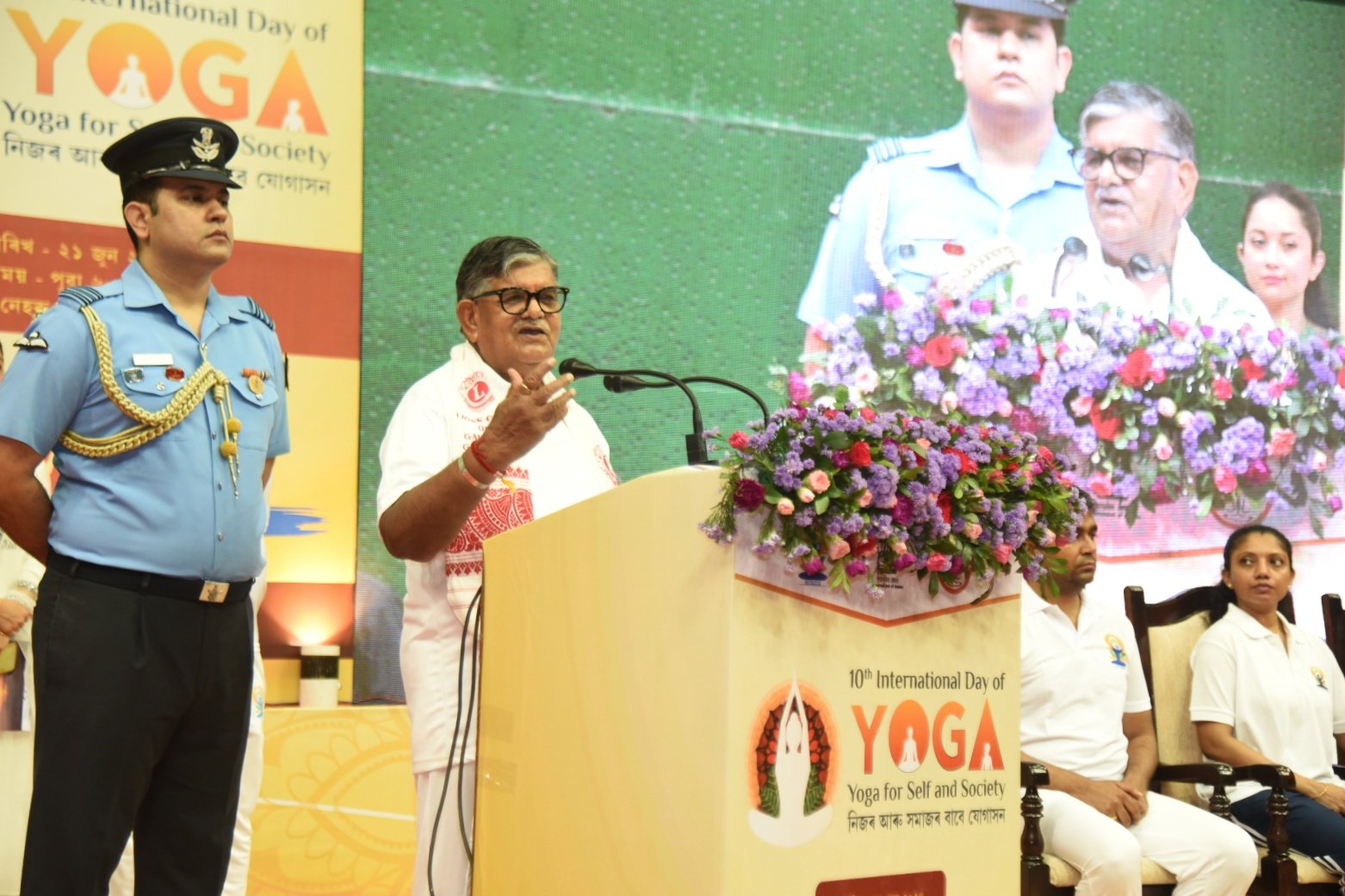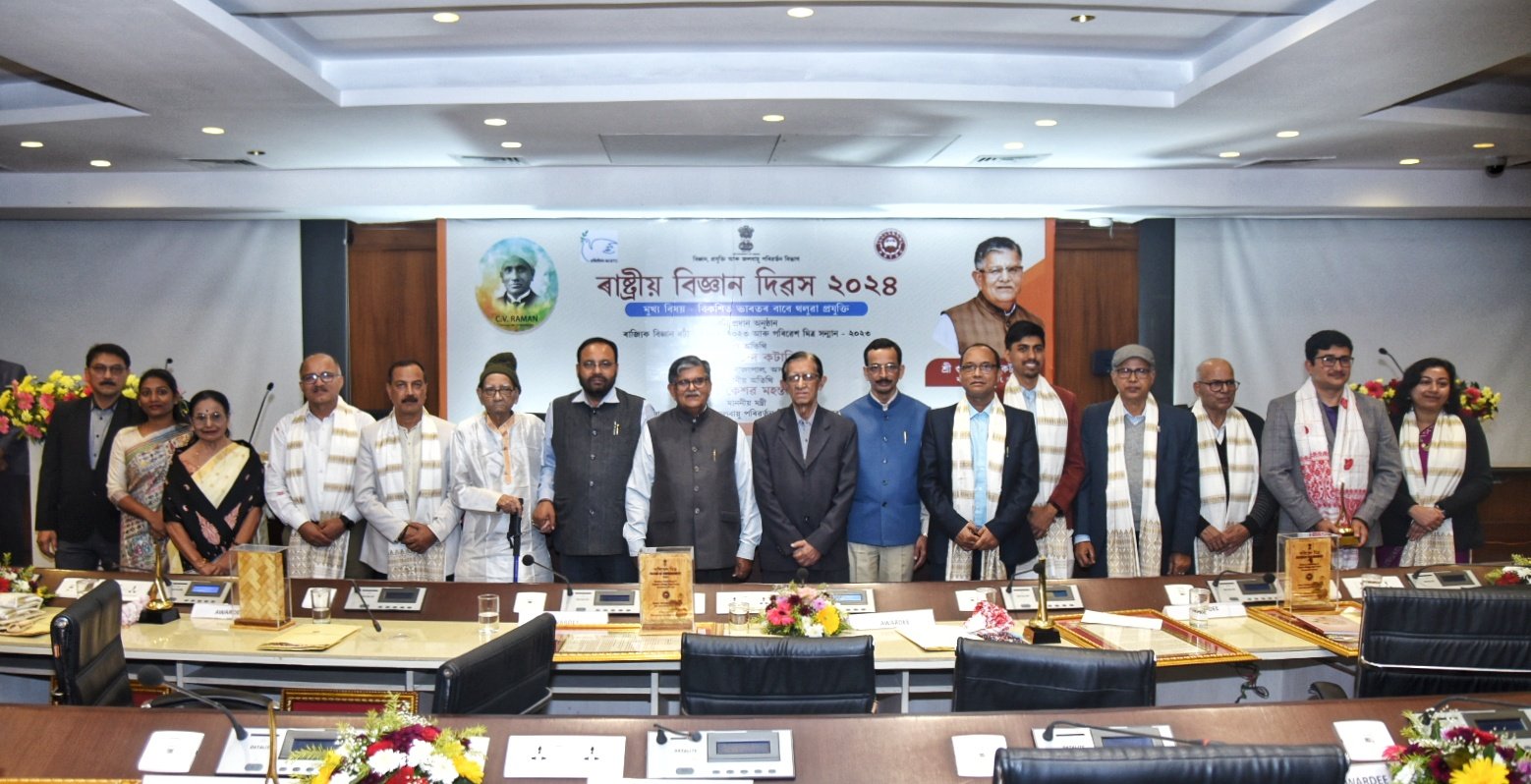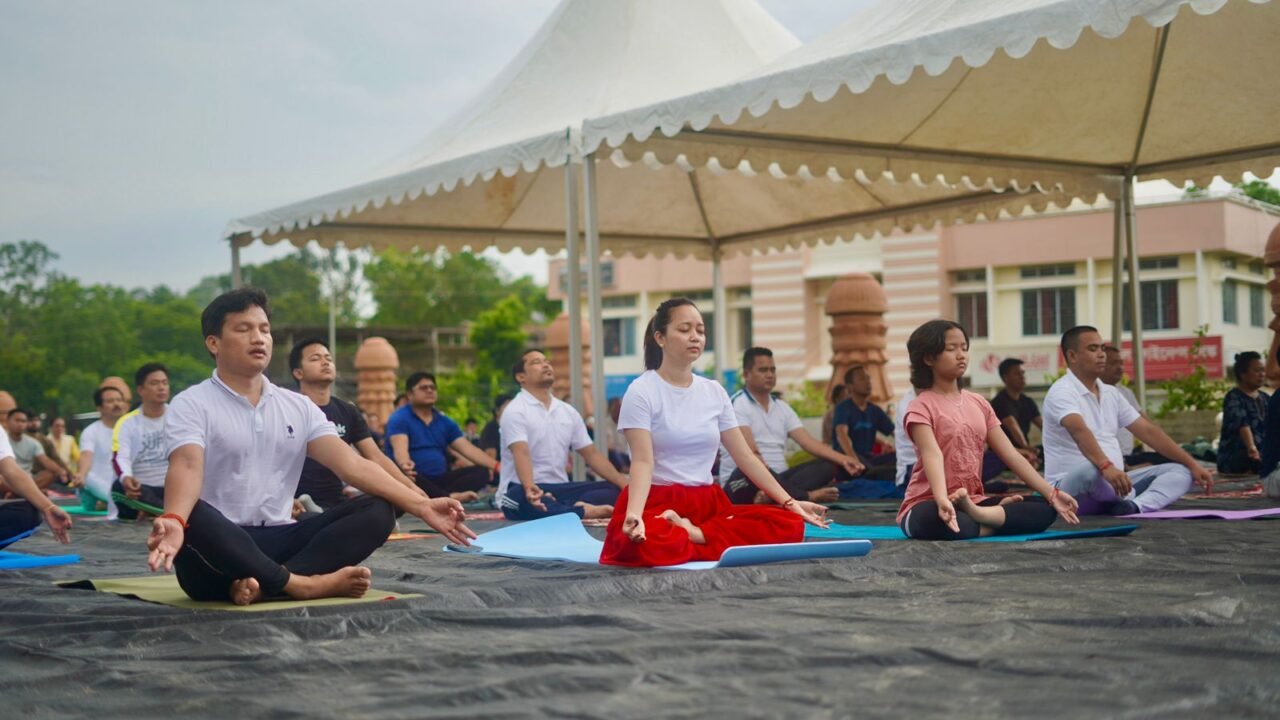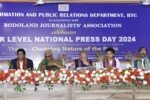GUWAHATI, Nov 30: Union minister Jitendra Singh on Saturday asserted that the country’s growth over the last decade was propelled by advancement in science and technology, and innovation.
He said that empowering youth and fostering innovations are key to achieving development goals for the nation.
Delivering the presidential address at the inaugural session of the 10th India International Science Festival (IISF) here, the Union minister of State for Science and Technology said, “India’s remarkable growth story is deeply rooted in its advancements in science and technology, and innovation.”
“Over the past decade, under the visionary leadership of Prime Minister Narendra Modi ji, we have seen a profound transformation across sectors — from the rise of startups to revolutionary breakthroughs in biotechnology, space technology, and quantum science,” he added.
The northeastern region, once on the periphery of development, has become a shining example of growth, embodying both economic progress and scientific innovation, he claimed.
“As we approach India@2047, empowering youth and fostering innovation is key. Initiatives like the National Research Foundation and the bioeconomy revolution are driving India toward self-reliance and global leadership, with young innovators leading the way,” the Union minister added.
The four-day festival aims to popularise science and technology across diverse communities and is expected to attract over 8,000 delegates, researchers and leading scientific organisations, along with 10,000 students, fostering collaboration and innovation across disciplines.
At the programme, Singh also launched the India Science, Technology & Innovation (ISTI) portal, a centralised platform which will serve as a comprehensive repository for content related to science, technology and innovation within India’s ecosystem.
Chief minister Himanta Biswa Sarma, speaking on the occasion, emphasised the importance of integrating technology, resources, and capital in present times to accelerate a nation’s growth and prosperity.
“Technology is the most transformative force… and by harnessing it, a nation can overcome resource limitation and reduce dependency on capital,” he maintained.
It will also help in achieving social equity, poverty alleviation, and improving the standard of living, impacting all sectors from agriculture to industry, power, communication and transportation, he added.
Highlighting India’s rich legacy of contribution to mathematics, astronomy, medicine, and philosophy, he said, “India has been a cradle of the pursuit of science. Assam also has a rich legacy, with its ancient name ‘Pragjyotishpur’ symbolising its contribution to astronomy and astrology.”
Expressing gratitude to the central government for holding the IISF in Guwahati, the CM said about 30 international scientists are also attending the meet, along with top luminaries of the field of the country.
He said 1,500 students from Assam are participating in the IISF and will be staying at the venue, IIT-Guwahati, for three days.
“It will be a one-of-a-kind experience for them. I urge our students to go back and share with their friends whatever they learn here,” Sarma added.
He said that the IISF is a celebration of collective commitment to excellence, innovation and harnessing of science and technology as a powerful engine of growth and prosperity for the nation.
Sarma requested the central government to grant higher education institutions of the Northeast opportunity under the ‘One Nation One Subscription’ scheme, a newly launched programme which will allow nationwide access to scholarly research articles and journal publications.
The CM said he also had a brief meeting with the director general (DG) of the Council of Scientific and Industrial Research (CSIR) N Kalaiselvi, who was present at the IISF and requested her research on how Assam can develop a flood-resistant economy.
“Every year, floods destroy our infrastructure. We need to introduce more flood-resistant construction technology. I am sure agencies like CSIR will work towards achieving it,” he said.
Sarma also requested the Centre for leveraging the Northeast’s strategic location and alignment with the Act East Policy, and consider establishing bio-foundry and bio-manufacturing hubs in the region.
“We are also eager to establish aroma, flavour, and fragrance industrial hubs in the state. We request the establishment of fragrance vertical by CSIR, along with R&D and incubation,” he said.
He proposed the setting up of a Northeast institution of climate studies and adaption to address the region’s climate vulnerability and preserve indigenous knowledge, among other aspects. (PTI)












